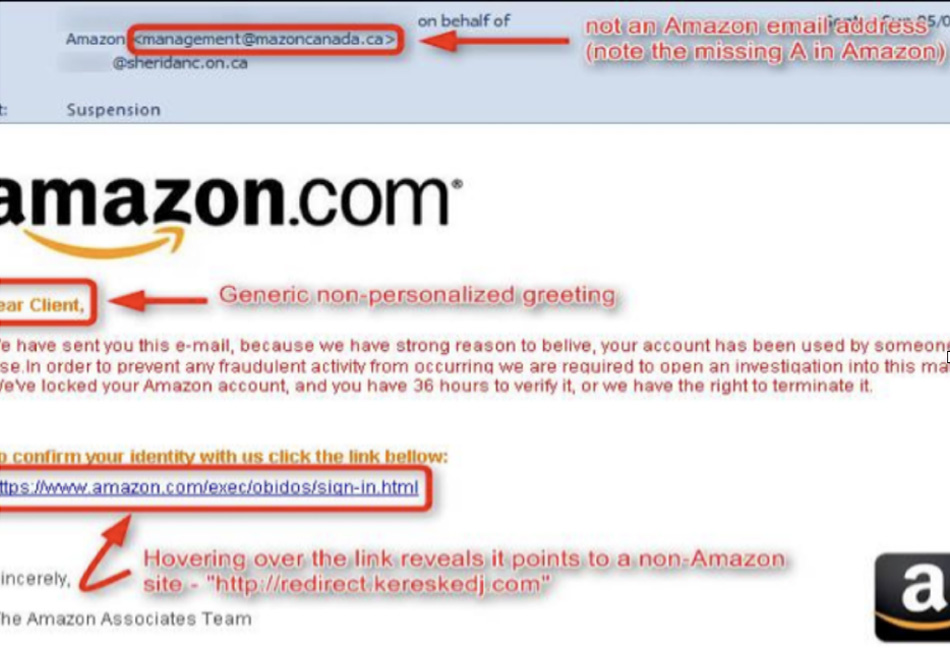Identity theft happens when your personal information such as your name, social security number, credit card number, etc. are used without your permission. This is generally done by thieves for taking over or open new accounts, offering work from home jobs, renting or buying properties, filing fake tax returns, or doing other illegal things in your name. It is a criminal offense and can create a lot of havoc in the lives of people and it could take months and even years and a lot of money to clear up the mess left behind by the thieves.
Don't be under the illusion that identity theft happens only to wealthy people. According to research, about 14.4 million dollars were stolen from identity theft victims in 2019. Aura, an identity theft and monitoring company, reports that 37 billion identities were stolen in 2020 alone. Anyone could fall a victim to identity theft regardless of their money, including you! You should always stay cautious while sharing any kind of personal information with a person or on any website.
Scam Detectors Most Trusted Websites in Online Security
- Guard.io (100): Surf the web safely. Clean up your browser, remove maliscious extensions and check for privacy violations.
- Incogni.com (100): Delete your personal data from the internet and protect against scams and identity theft.
- ExpressVPN (100) Stay secure and anonymous online - Best VPN Out There
- IPVansish (100) Fast VPN to stay safe and secure online with multiple discount plans.
Meanwhile, learn how to remove your information from the internet.
Who Is Vulnerable to Identity Theft?
Though most people are vulnerable to identity theft, there is a particular group of people who are at a certain higher risk of identity theft. Recently separated couples, for instance, are at a higher risk of identity theft since meeting new people automatically results in oversharing. Be careful of what you share on your social media and dating websites (here is a list with most common identity theft cases).
Also if you are meeting a person you don't know well and may need to share information, always run a quick public record search to be sure you're not sharing information with some fraud.
Children too are at a higher risk since they have a clean credit history thereby making it easier for criminals to open accounts, make new charges, etc. To avoid such situations try not to share too much about your children and their accomplishments. You may be proud of your children, but oversharing information about them could bring more harm than good.
Millennials are also at a higher risk since they accept unknown friend requests more readily which attracts criminals looking for personal information. Also, you should always be aware of what you share on social media. Names, birthdays, addresses, and phone numbers are better off without being shared online, especially if you have a lot of unknown friends.

Newlyweds, new parents, and new homeowners are more susceptible to identity theft since they share a lot of information online. Newlyweds and new parents are generally vulnerable since their guard is down, while new homeowners have increased online purchases and unattended outsiders, making it risky.
Types Of Personal Information That Can Be Stolen
There are many types of personal information that even you may not know is personal. Any kind of information you give for online purchases, or mail subscriptions, or filling out various forms is personal. Here is a list of information you and your family should refrain from sharing with any random stranger:
- Full name
- Address
- Social Security Number (watch out for Social Security scams)
- Date of birth
- Mother's maiden name
- Personal Identification Numbers (PINs) used for ATM, debit, and credit cards
- Passwords or pass-phrases that access online accounts
- Bank and credit card account numbers (see these credit card scams)
- Your personal Items
- Social Security Number card
- Checkbook
- ATM Card
- Birth certificate
- Passport
- Credit report
- Financial statements: bank, credit card, investment, life insurance, loan.
- Information about your child's benefits: Medicaid, SSI
- Estate planning documents: will, special needs trust, powers of attorney, letter of intent.
Types Of Identity Theft
It is better to keep a note of the types of identity thefts to be further aware and stay protected:
Financial Theft:
This is the type of theft that immediately comes to your mind when you think about identity theft. This kind of theft takes place in two ways. The first way is the most heard of where the bank accounts and credit cards are accessed and exploited illegally. The thief withdraws all the money and maxes out the credit cards, causing a lot of problems.
Secondly, the thief uses the identity of the victim to take loans or issue new credit cards. The effect of this kind of fraud on the victims' credit record is devastating and difficult to fix. However, there is a website offered by the Federal Trade Commission that provides the steps you can take for recovery from identity theft.
Driver's License Identity Theft:
In this type of theft, the driver's license of a person is stolen and misused. They may even sell it off to someone who looks quite similar to the real owner of the ID. If the criminals are caught in any traffic violation, they will show the stolen driving license and any offense will be registered in the real owner's name causing problems like higher rates in car insurance or problems while obtaining new car insurance. In extreme cases, it may even lead to the driver's license being revoked or suspended. The theft typically happens when victims trying to do their driver license renewal online.
Criminal Identity Theft:
The driver's license case is just the beginning, things can go way worse when your ID is stolen. If the new owner commits any crime, they can give the fake ID to the police resulting in the criminal record being created in the original owner's name. This could lead to a hassle for the original owner such as problems with law enforcement or may not be able to gain employment again.
Medical Identity Theft:
The reason even the medical identities to are not spared is because these identities can be used to commit fraud that involves health insurance and medical coverage. The hidden danger of medical identity theft, according to the World Health Organization (WHO) is that it could lead to incorrect entries in the victim's medical history, thereby causing wrong diagnosis and other complications.
Insurance Identity Theft:
This is similar to medical Identity theft and could cause a lot of adverse effects for the victim like difficulty in payment settlement, trouble in acquiring medical coverage later, an increase in insurance premium, and so on.
Child Identity Theft:
Since children are not very aware of their identities, and parents more often than not end up spilling too much information on their children, it is very easy for criminals to use identities of children to defraud the government, apply for loans, commit crimes and create new documents. This could later be a problem for the child if not brought into concern.
Synthetic Identity Theft:
In this kind of identity theft, information of various people are mixed and misused. Although the one at a loss here is the lender, however, it could still cause problems for the person whose name or social security number was involved.
If you want to be a hundred percent sure about your safety, there are identity theft insurance policies that provide protection against these kinds of identity thefts.
Ways In Which Your information Can Be Stolen And How To Avoid It
Online methods:
Do not share personal details over public WiFi. Using Public WiFi could give the thieves access to any information you send or receive since public WiFi is not encrypted. Hackers could easily commit identity theft by interpreting your info.
Before you make any money involving transactions or enter any kind of personal information make sure the website is secured. Secured sites generally have a lock icon and must contain https at the beginning of the URL.

Be aware of emails and phone calls that seem to come from some trustworthy company, since most cybercriminals use this method to gain your personal information. This method is known as Phishing. These kinds of emails can be identified by their poor grammar, unofficial looking email, a tone of urgency in their message or an attached link. Never click a link that is directly attached to an email. You should instead call the concerned authority for verification.
Offline methods:
Beware of thieves who peak over your shoulder when you enter sensitive information on the phone, ATM or Computer or listen when you provide confidential information over a phone call. This method of identity theft is known as shoulder surfing. To avoid such thieves, try to be as discreet as possible while entering such information, and also look around to see if anyone is watching.

Dumpster diving is another popular method of identity stealing. The criminal fiddle around through your dumpster to find discarded cheques or credit cards. Never throw bills, receipts, old credit cards, old ID cards, or useless checks in your dumpster. Instead, tear them into pieces and discard them somewhere away from your home.
If you ever become a victim of identity theft, react as quickly as possible.
Contact the business where your identity was misused inform them about the fraudulent activity and close them.
Immediately file a police report.
Contact the three major credit reporting bureaus -TransUnion, Equifax, and Experian.
Consider putting a fraud alert and credit freeze on your credit card while setting up a credit monitoring app to monitor all your other existing accounts.
Change your passwords into stronger ones for all your online accounts.
Report your identity theft to the Federal Trade Commission on their website IdentityTheft.gov or call 1-877-438-4338.
These are all the essential things you need to know to help protect you against identity theft. Always check your emails and SMS to know if you have been a victim of identity theft since it happens without your knowledge. Always exchange information in safety and do not trust every email that you receive with an offer. If you follow these basic rules, your chances of being an identity theft victim will automatically reduce. Better safe than sorry!
Verify a website below
Are you just about to make a purchase online? See if the website is legit with our validator:
vldtr®


TOP 4 MUST-WATCH FRAUD PREVENTION VIDEOS
1. Top 5 Amazon Scams in 2024 2. Top 5 PayPal Scams in 2024 3. How To Spot a Scam Email in 2024
- Latest Posts by Selma Hrynchuk
-
Compromised Credit Card Scam
- -
Fake Google Chrome Update
- -
Facebook Privacy Notice Hoax
- All Posts














Wow! I stumbled upon this site, and I’m so glad that I did! Everyone involved who contributed to this site should be proud the end result! It is easy to navigate, and provides a wide range of information about what scams are out there, and how to prevent one from falling victim to one. Such information is priceless! I’m planning to share this website’s address with my family, friends & my social media profiles. Hopefully, doing so will prevent someone from being suckered into being taken advantage of.
Now, I didn’t see this scam listed anywhere on here yet. But, I also haven’t been able to look through all the info provided on this site, so maybe it is mentioned somewhere on here & I missed it…..If you are looking online for a job and find a position that you want to apply for…WAIT! First, jump on a search engine & search,’Is ‘name of company/business’ ‘job position’ legit? Be sure to look up the reviews of the employer on a reputable site, like LinkedIn. The reviews are provided by previous and current employees. These reviews will give you a general feel as to how the employer operates, what they expect from their employees, and the work environments provided. I wish someone had told me these things when I started looking online for a work at home, part-time position! I’ve learned this stuff the hard, financially painful & emotionally tiring way! Yes, it takes time to look up reviews on available positions. But, it takes more time to start working a new job, learn the ropes and then get scammed. It can set you back weeks, even months! Plus, you lose money and time that cannot be replaced. Taking the time to review an employer & potential position opening is worth every minute involved!
Good luck staying safe out there! And thank you, Scam Detector, for providing this invaluable information to help others protect themselves from the criminals of the world!
Sir my personal information financial rewards 2019 year me inform to this email address is bank of America [email protected] subject re won my number America lottery agent Matthew this agent received usd to my money 17000 thousand ragestteson and cgst charges fees me Allredi pay to money this email agent please my help you